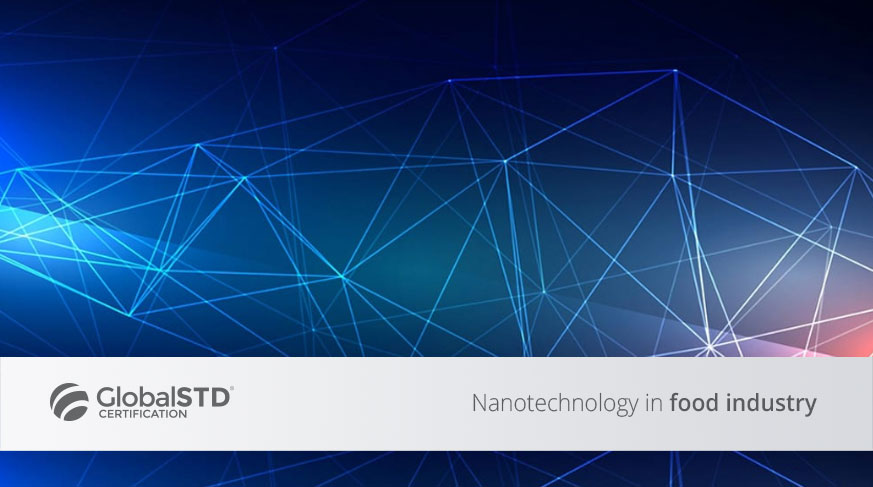
Nanotechnology in food industry
The benefits of nanotechnology for the food industry are many and are expected to grow with time. This new, rapidly developing technology impacts every aspect of the food system from cultivation to food production to processing, packaging, transportation, shelf life and bioavailability of nutrients.
The National Nanotechnology Initiative in the U.S. defines nanotechnology as the understanding and control of matter at a nanoscale where unique phenomena enable novel applications. Nanomaterials are further defined as substances between 1 and 100 nm in size showing physical, chemical and biological properties that are not found in bulk samples of the same material. Their extremely small size and high surface area are associated with their greater strength, stability and chemical and biological activities. Therefore, nanotechnology enables development of novel materials with a wide range of potential applications. Nanomaterials are used in a variety of consumer, medical, commercial and industrial products. Because nanotechnology is an emerging, rapidly developing technology, very limited information about it is currently available.
What food technologists and engineers are doing to improve the safety of our food supply, seems limited only by one’s imagination, and nanotechnology opens the door to a whole new array of products (Figure 1). Fresh fruits, vegetables, meat and poultry products are potential vehicles for the transmission of human pathogens leading to foodborne disease outbreaks, which draw public attention to food safety. Therefore, there is a need to develop new antimicrobials to ensure food safety. Because of the antimicrobial properties of nanomaterials, nanotechnology offers great potential for novel antimicrobial agents for the food and food-related industries. The use of nano-antimicrobial agents added directly to foods or through antimicrobial packaging is an effective approach. As a result, the use of nanotechnology by the food and food-related industries is expected to increase, impacting the food system at all stages from food production to processing, packaging, transportation, storage, security, safety and quality.
The benefits of nanotechnology use by the food industry are many and expected to grow. This new, rapidly developing technology impacts every aspect of the food system from production to processing, packaging, transportation, shelf life and bioavailability. Commercial applications of nanomaterials in the food industry will grow because of their unique and novel properties. Human exposure to nanomaterials will continue to increase. Therefore, the health impact of nanomaterials in food is of prime public concern. The ability to quantify the nanomaterial throughout the food life cycle is critical for manufacturing consistency, safety and potential benefits of the consumer product. Public acceptance of food and food-related products containing nanomaterials will depend on their safety. A uniform international regulatory framework for nanotechnology in food is a must.
Article written by Food Safety magazine.
